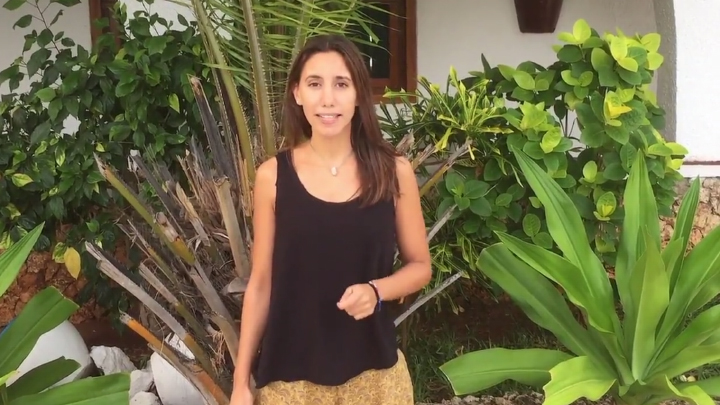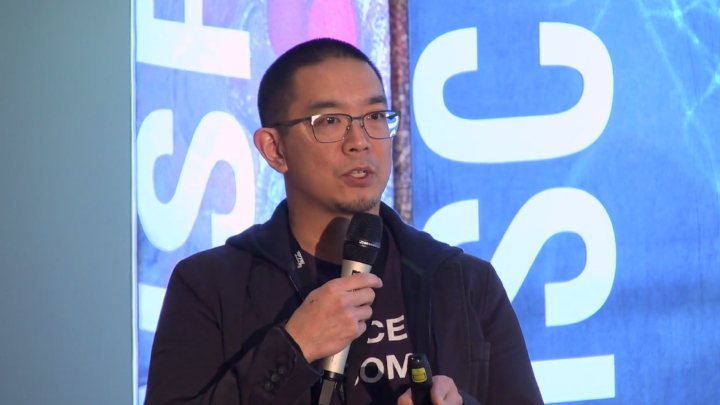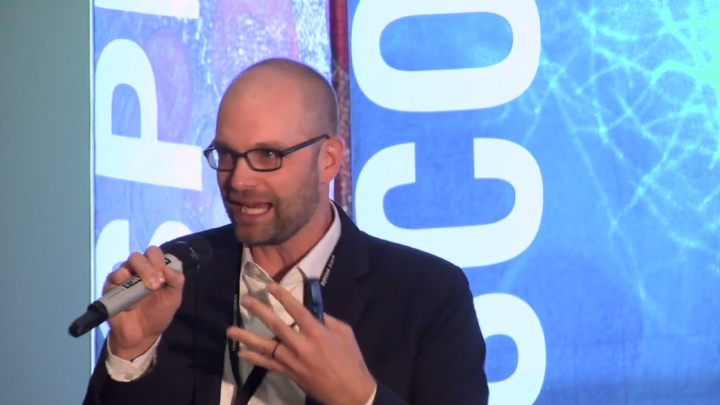Communicating Science with Zines
Script
Christine Liu:
Thank you very much.
Like you said, I'm Christine. I'm a third year graduate student right now in neuroscience at UC Berkeley and I'm very excited to be here today. This is the first time I ever get to talk about my zine so, thank you all for being my audience.
A little background on our zines. Two photon is actually a microscopy technique that uses two beams of light instead of one to allow neuroscientist to image deeper into the brain. Two Photon Art on the other hand is two scientists collaborating together to use art to communicate science.
Tara and I, the co-founder of Two Photon Art, met during a summer research program at University of Oregon where underrepresented scientists were brought together to do research. This was the first time that I actually met other people who were as passionate about research as I was who came from low income or minority backgrounds but I also met someone that was as passionate about art as I was. We don't ever live together or anything so we have to try very hard to keep in touch while doing our research and our academics. But, Tara had this great idea to use our passion for art and science and science communication to start making zines.
Now, I also had no idea what zines were until she educated me on them. Zines can be really anything. I think Kari has some that she can start passing around but essentially, they're just pieces of paper stapled and folded and turned into a little booklet. They were really big in the eighties and nineties in the DIY punk scenes but they are making a reemergence and can contain anything from poetry to art, comics, diary entries, really anything you can think of so why not science?
We make all sorts of different types of zines. We have one about just neuroscience research summaries. People actually will pay for research summaries of what we're doing in our labs and treasure the information given if you just package it in the right way.
We also cover topics like face blindness or prosopagnosia which has been awesome. We've gotten a lot of people with prosopagnosia or know someone who has it who's come up to us and say, "Thank you for this resource on how I can educate people about this topic". Also people who are just interested in the brain have been able to use this as a resource to look deeper into ideas revolving around neurological disorders.
We also met other artists that are very interested in what we do and we collaborated with an artist we met at the East Bay Zine Fest to make a mini poster which we entered into the Alan Alda Flame Challenge where sixth graders actually ranked our entry which is just a piece of pulp paper folded up as top 25 when we were competing mostly against videos. That's really a testament to how powerful zines can be when these sixth graders are surrounded by paper all of the time but presented in a more artistic and fun way, they actually enjoy using it as a learning tool.
Here's an example of a more recent zine that we've made with a topic circuit bending which is the practice of customizing musical instruments to create connections that normally don't exist to create really amazing sounds. I describe it as maybe robot war sounds. You have to look it up and listen to it but in the zine we talk about all the different types of instruments that can be made, all the different types of musicians that have used circuit bent instruments but really we also go into some basic electrical engineering principles. This is a way to lure people in to topics they would normally be intimidated by but in a really fun way. We're trying to use interesting topics to create a bridge for people who normally would not be interested in science for whatever reason to have that spark.
What I really like about zines is that there's not really one audience. Most of the time I go to the zine fest which are attended by people of all ages in all educational backgrounds. Importantly, a lot of the zine community contains a lot of people who are minorities whether they're people of color, gender or sexual minorities or coming from all sorts of different backgrounds primarily, a lot of artists too.
I think we all know this idea that there's this left brain and right brain idea which is also a neuroscience myth. There's this idea that science and art doesn't always mix but we're trying to tear down that notion and break that stereotype and show that art is a great way to communicate science and anybody can do science and it can belong to anybody.
I think zines are a really great tool for people who are really didn't understand or get science in the traditional classroom setting for whatever reason by having it in this compact, very unpretentious zine booklet. People can just pick it up and read it for fun without feeling if they're reading a textbook, when really it actually contains the same information.
Now our overall mission is to deliver accurate scientific information. If you notice on the back, a lot of times we cite our sources and encourage further reading. Our real goal is to create extremely accessible science education to make it so that people who think they can't do science believe that they actually can. We want to empower people who would normally have ideas that 'oh, maybe I'm an artist' or 'I'm a musician' or 'I do this. I do that. I'm not a scientist' but to actually help them realize that science is everywhere and it can belong to them just as much as we feel that it belongs to us.
Thank you very much.
Related Videos
-

Bridging the Gap Towards a Truly Global Scientific Community -

Promoting Scientific Literacy -

Inspiring Exploration in Botany

